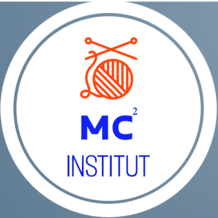Institut Maîtres Citoyens
- MC²-
| ||||||||||
Presentation
The Institut Maîtres Citoyens is an independent apolitical consulting firm, projecting itself on the economic, military, diplomatic, political and social future exclusively for eFrance, founded and managed jointly by Citoyen Vigneron and Maitre Nico.
The idea comes from a very simple and, in fact, century-old concept: it is not necessary to be politicians to stimulate debate and to be able to propose new policies for the continuous improvement of the State.
The Institute believes in the ability of ordinary citizens to be able to reflect on the issues that will affect their daily lives. These thoughts, analyzed objectively, will be the basis for the activities of our association. A serious but informal environment in which all proposals will be objectively evaluated with the aim of improving them.
Goals
The goal is to come up with new ideas and complete proposals to transform eFrance in depth, to explain them to as many people as possible so that anyone can be inspired by them directly and, if possible, to apply them in practice.
We will look to the future, but in all of this we will certainly not forget to consider the past. Knowledge, in fact, starts from the past and for this reason we will try to be also memory and not only future.
This will therefore pass through the use and sponsorship of the wiki: the Institute will always be a promoter for the conservation of past proposals and for their writing for the benefit of posterity in order to deliver it to a kind of historical archive of the nation .
Work methods
- Scientific approach to the idea
- Brainstorming
- Impartiality and neutrality of data sent and received
- Constructive criticism
- Statistical and empirical studies
- Sociology
- Comparison with the experiences of foreign countries
- Availability for ongoing review, based on developments over time
